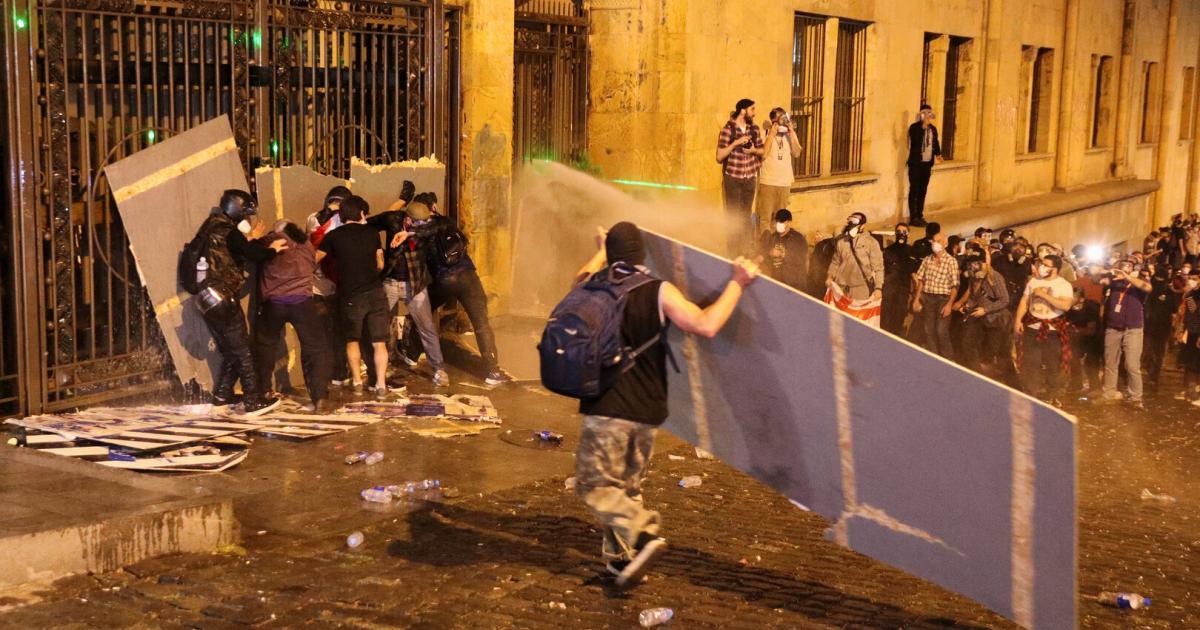In Georgia, the parliament passed a law on “foreign influence” in its second reading on Wednesday. The MPs in Tbilisi voted 83 in favor and 23 against adopting the law, which opponents view as a tool to suppress critical media and organizations. The Foreign Ministry in Vienna expressed deep concern about the violence against peaceful demonstrators in Georgia. They emphasized that peaceful assembly and freedom of expression are essential for democracy and called for a return to dialogue.
Demonstrators gathered tens of thousands in front of the parliament building in Tbilisi, waving the flags of Georgia and the European Union. This was just one day after police dispersed demonstrators with tear gas and rubber bullets, resulting in 63 arrests. Protests have been ongoing against what is known as Russia’s “Russian law,” which has been compared to Russia’s law against “foreign agents.” This law allows authorities to crack down on critical media and organizations, leading critics to express concerns that it will infringe upon freedom of speech and press.
The ruling party, Georgian Dream, aims for the law to come into effect in mid-May. It requires organizations receiving at least 20 percent of their funding from abroad to register officially in Georgia. Brussels has stated that this undermines Georgia’s membership ambitions, adding that it poses a threat to democracy and human rights. As tensions continue to rise between protesters and government officials over this contentious issue, it remains uncertain how long protests will last or what impact they will have on Georgia’s future relationship with Europe.
In conclusion, the passing of the foreign influence law by Georgian Parliament is a major step towards greater control over civil society by the government. While some see it as necessary for national security reasons, others fear it will stifle free expression and lead to increased authoritarianism. The international community is closely watching this situation unfold as tensions continue between protesters and government officials over this contentious issue.



